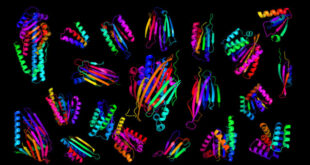Caffeine consumed during pregnancy can change important brain pathways that could lead to behavioral problems later in life, according to new research from the Del Monte Institute for Neuroscience at the University of Rochester Medical Center.
Caffeine is a known neuromodulator that is commonly consumed throughout pregnancy. Image credit: Poohchisa Tunsiri.
Caffeine is a very widely used and potent neuromodulator that easily crosses the placental barrier.
Previous studies have found caffeine can have a negative effect on pregnancy. It is also known that a fetus does not have the enzyme necessary to breakdown caffeine when it crosses the placenta.
The new study reveals changes in the brain structure in children who were exposed to caffeine in utero.
“These are sort of small effects and it’s not causing horrendous psychiatric conditions, but it is causing minimal but noticeable behavioral issues that should make us consider long term effects of caffeine intake during pregnancy,” said Dr. John Foxe, director of the Del Monte Institute for Neuroscience.
“I suppose the outcome of this study will be a recommendation that any caffeine during pregnancy is probably not such a good idea.”
Dr. Foxe and colleagues analyzed magnetic resonance imaging (MRI) scans of 9,57 children (aged 9-10 years) as part of the Adolescent Brain and Cognitive Developmentsm (ABCD) study.
They found a change in important brain pathways in those whose mothers retrospectively reported consuming caffeine while pregnant.
“It is important to point out this is a retrospective study,” Dr. Foxe said.
“We are relying on mothers to remember how much caffeine they took in while they were pregnant.”
The researchers also observed elevated behavioral issues, attention difficulties, and hyperactivity in these children.
“What makes this unique is that we have a biological pathway that looks different when you consume caffeine through pregnancy,” said Zachary Christensen, a M.D/Ph.D. candidate at the Del Monte Institute for Neuroscience.
“Previous studies have shown that children perform differently on IQ tests, or they have different psychopathology, but that could also be related to demographics, so it’s hard to parse that out until you have something like a biomarker.”
“This gives us a place to start future research to try to learn exactly when the change is occurring in the brain.”
“Current clinical guidelines already suggest limiting caffeine intake during pregnancy — no more than two normal cups of coffee a day,” he added.
“In the long term, we hope to develop better guidance for mothers, but in the meantime, they should ask their doctor as concerns arise.”
The results were published in the journal Neuropharmacology.
_____
Zachary P. Christensen et al. 2021. Caffeine exposure in utero is associated with structural brain alterations and deleterious neurocognitive outcomes in 9-10 year old children. Neuropharmacology 186: 108479; doi: 10.1016/j.neuropharm.2021.108479
 #Bizwhiznetwork.com Innovation ΛI |Technology News
#Bizwhiznetwork.com Innovation ΛI |Technology News




